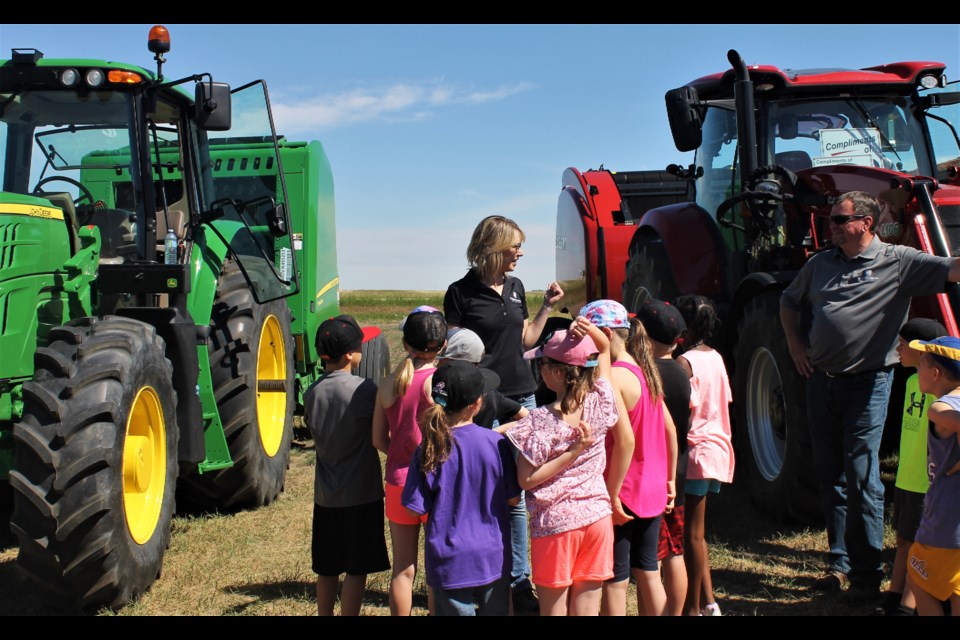It was busy out at a local farm north of Moose Jaw on June 13, with over 200 Grade 3 students from around the city learning about what agriculture looks like.
The farm belongs to Gordon Knox, who has been hosting the Food Farm program on his property for several years. He sees great value in letting kids experience how farming impacts them because some don’t realize just how much farmers do.
“This is a chance for them to come out and get hands-on experience,” said Knox. “I always get positive feedback, and we have to promote our industry, it's important. We grow good, healthy food and I think people need to know that.”
The program teaches kids where their food comes from - grains, animals, and dairy — in a very hands-on kind of way. They get to plant seeds, plants, and even some underwear, and when they come back in the fall to dig them up, they can see the progress.
The plants grow, of course; the underwear disintegrates due to microbes and bacteria in the soil.
There was more going on than just planting seeds. Beef and dairy producers were there to talk about raising livestock, and local John Deere and Case dealers showed off how tractors and balers can help farmers.
One table talked about all the different ways we use canola, from cooking oil to livestock feed. Ministry of Agriculture interns gave a demonstration on soil science, and local beekeepers from near Swift Current explained the cycle of bees and how honey is made.
The Food Farm program operates in areas all across Saskatchewan and always gets an enthusiastic response from the kids.
Nicholas Kelemez, a student from Ogema School, found the honey bee presentation interesting, as well as the demonstration on cereal and pulse crops.
“I learned a lot about the bees because I didn't really have any of those on the farm, and I learned some about cows and plants,” said Kelemez.
Dillyn Longely, also a student from Ogema School, thought that burying the underwear was pretty cool, and of course, seeing a baby calf was a highlight.
“I learned more about wheat and like the flax, and about animals and bees,” said Longley.
Program coordinator Jaycee Peutert finds that the program gives kids who have no experience with the agricultural industry a chance to witness what happens out at the farm, as it's becoming easy to be disconnected in the city.
“It just gives them a chance to come and learn about agriculture from people who are directly involved,” said Peutert. “They're passionate people, they love to talk about it, so just connecting the kids with those kinds of people is awesome.”
The Food Farm program is set up through Agriculture in the Classroom, which has a number of programs to bring agriculture education into the classroom.


.png;w=120;h=80;mode=crop)

